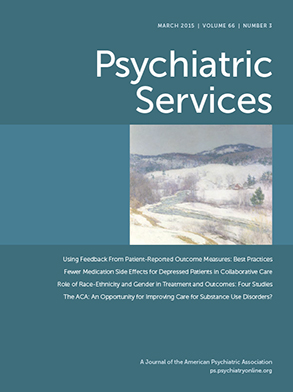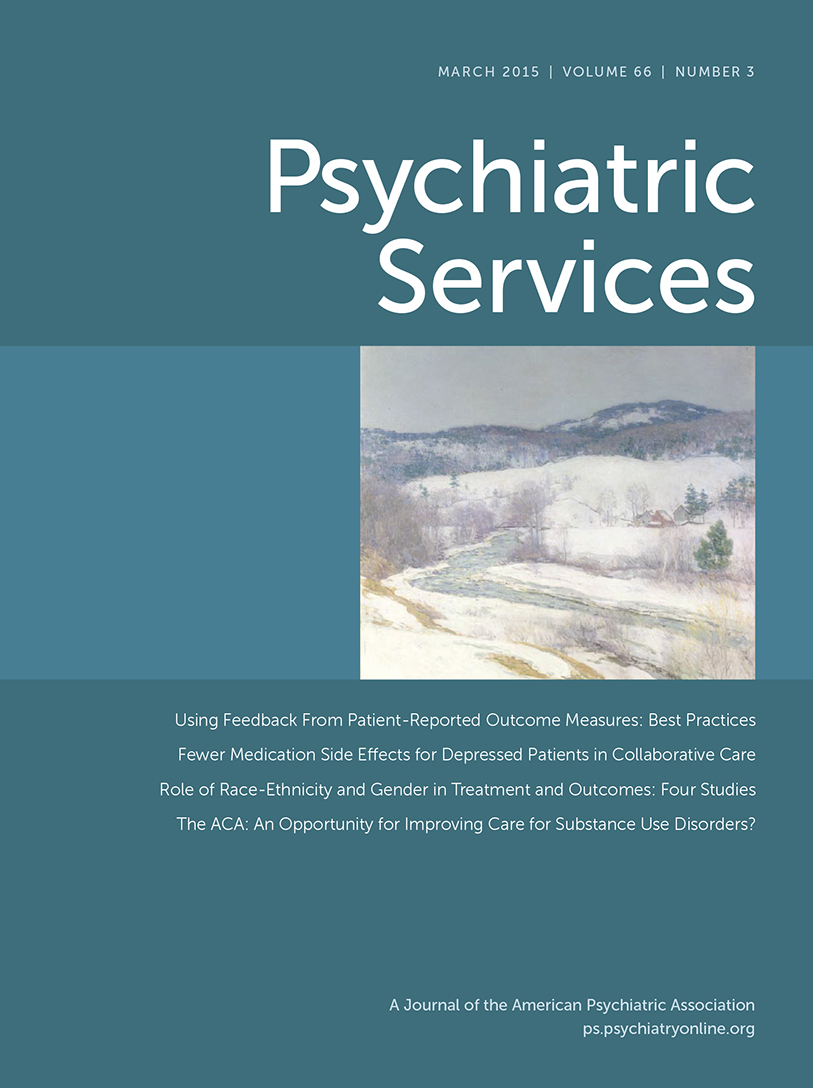To the Editor: In their Integrated Care column in the December issue, Williams and colleagues (
1) called on psychiatrists to take on a more active role in treating tobacco use disorders. Despite reduced smoking rates in the U.S. population at large, the problem of nicotine dependence persists among people with mental illness. Among those with mental illness, 50% to 80% smoke, and 34% to 44 % of all cigarettes in the United States are consumed by people with mental illnesses (
2).
As Williams and colleagues pointed out, psychiatrists are well suited to address nicotine dependence. We recently completed a survey of the perspectives of primary care providers (PCPs) in regard to the integration of primary and behavioral health care. Specifically, we sought to understand what PCPs view as appropriate responsibilities for psychiatric providers in the realm of general medical ailments. Our results provide a different perspective and yet echo Williams and colleagues’ plea.
Briefly, we distributed a Web-based survey to 100 PCPs, all of whom care for at least one patient at the independent community mental health center where we work. Most patients served at our clinic have a serious mental illness, usually a psychotic disorder. Twenty experienced PCPs completed the survey; the mean±SD age was 51±10 years, and they had an average of 19 ±10 years’ experience. Half of the providers had more than ten patients with a psychotic disorder. We asked about their comfort level in caring for patients with psychotic disorders and about their satisfaction with communication with psychiatric providers, and we found mixed levels of comfort and satisfaction. Both questions were right-skewed, with 75% of responses in the neutral to negative range. Next, we asked whether PCPs were comfortable with the management of certain general medical conditions by mental health care providers. Sixty percent of PCPs did not feel comfortable with psychiatric providers managing hypertension, and 55% were uncomfortable with psychiatric providers managing elevated glucose and HgbA1C with oral hypoglycemic medications or elevated lipids or triglycerides. By contrast, all respondents felt comfortable with psychiatric providers managing smoking cessation, including prescribing varenicline. Finally, we asked PCPs to identify their priorities for improving care to persons with psychotic disorders, and 68% cited communication as the top need.
Mounting evidence supports the value of integrated psychiatric and primary care, in its various permutations (colocated, in house, facilitated referral, and care management) (
3,
4). Communication is essential to any form of integration, and it is not surprising that this was ranked as PCPs’ highest priority to improve care. How information is exchanged and how roles are defined, for patient and provider, remain challenging. Clear delineation of responsibilities has the advantage of minimizing diffusion of responsibility. Our results indicate that treatment of nicotine dependence is the health priority PCPs are comfortable delegating to psychiatric providers. In an urban environment such as ours, where access to care is not a problem, the debate about treatment responsibility may be a luxury not possible in other parts of the country. However, all providers can agree that smoking cessation is a critical health issue and that psychiatric providers should offer evidence-based smoking cessation treatments.
Acknowledgments
The authors thank Travis Baggett, M.D., M.P.H., and Kelly Irwin, M.D., for discussion of survey development and acquisition of current PCP contacts.

